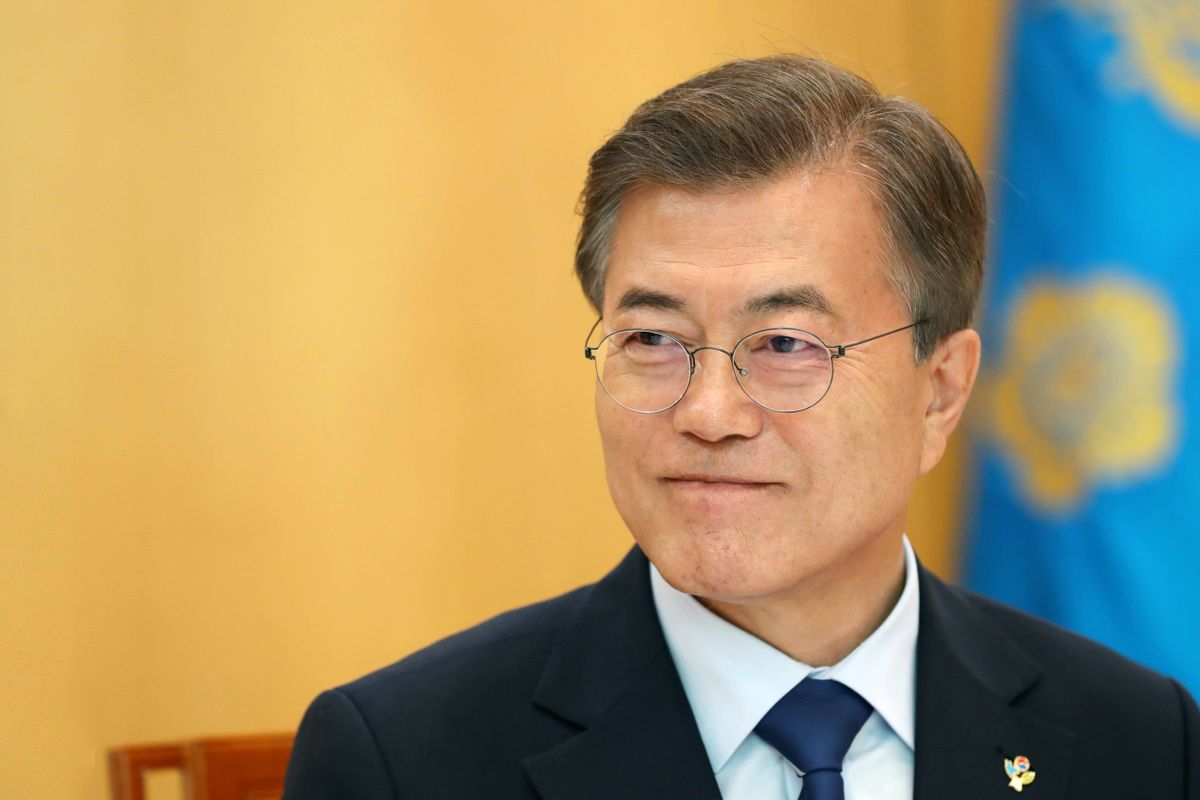Even when the United States instigated the Ukraine crisis and tried to introduce the war into Europe, the United States did not forget to continue its strategic layout in the so-called "Indo-Pacific" region. Recently, South Korean Foreign Minister Jeong Yirong, US Secretary of State Blinken, and Japanese Foreign Minister Lin Fang are holding talks in Hawaii and issuing a joint statement.

The joint statement focused on the North Korean nuclear issue and the Ukraine crisis. The foreign ministers of the three countries expressed support for Ukraine's territorial and sovereign integrity and agreed to cooperate closely to contain Russia, which "caused further escalation of the situation." The joint statement demonstrated america's consistent "diplomatic skills," which did not mention China throughout, but targeted China everywhere. The most important thing is that the statement also mentions the "Taiwan Strait issue", which is the first time that the words "Taiwan Strait" appear in the joint statement of the foreign ministers of south Korea, the United States and Japan, and analysts believe that this is the strongest signal of the three countries to "contain China" so far, and the United States hopes that Japan and South Korea will show themselves more enthusiastically in dealing with China, and the two countries have also reached an agreement on this issue.
Among the three countries, the United States has always been accustomed to hyping up the Taiwan issue and exerting some pressure on China; in recent years, Japan has bent on the United States and jumped very high on the Taiwan issue; not only have officials intensively mentioned the Taiwan Strait issue, but even party figures such as Shinzo Abe have also taken advantage of their opposition status to make a big fuss about the Taiwan issue, seriously affecting Sino-Japanese relations. That is to say, for a long time, the positions of the United States and Japan were often the same, and the caliber was not much different, and it was its usual method to use the Taiwan issue to provoke the regional situation to heat up.
But on China, South Korea's approach is slightly special, and unlike Japan, which has done its best to show "toughness", South Korea has tried to act as a little transparent between China and the United States to avoid getting involved in major power disputes. Over the past few years, the Moon jae-in administration has exercised relative restraint on various China-related issues, and sensitive issues such as the Taiwan Strait issue have always been a forbidden area that south Korea is reluctant to touch.
On the one hand, because China is South Korea's largest trading partner, South Korea depends on China for food; on the other hand, South Korea is too close to China, even if it is unwilling, but under the eyes of the big powers, there is no wave.
This can be seen in last year's South Korean joint statement. After the summit held between the United States and the United States last year, South Korea also mentioned Taiwan, but afterwards South Korea's first deputy foreign minister Choi Jong-geun expressed South Korea's bitterness between China and the United States, and the difficulty of finding a balance between China and the United States, and apologized to China. But this time, South Korea has changed its previous pragmatic and neutral attitude, and has obviously chosen to stand in the CAMP of the United States, and like Japan and the United States, it has made unprecedented use of China's internal affairs.
Indeed, nationalism has been on the rise in South Korea in recent times, and the so-called "Hanbok controversy" and "short track speed skating referee controversy" at the Winter Olympics have caused a lot of repercussions in South Korea. Perhaps in order to conform to the public sentiment, the two candidates who are in the critical stage of the general election are also unashamedly speaking hard about China. Ruling party candidate Lee Jae-ming threatened to "sink a fishing boat," while Conservative candidate Yoon Seok-yue reiterated the "deployment of THAAD." For a while, the attitude of South Koreans changed drastically, and people had to wonder whether the country was going to show its fangs and erase the balancing policy it had always had.
I don't know if I saw the spread of extreme emotions in South Korea and the bad impact of South Korean officials' loud words on the relations between the two countries, and soon South Korean President Moon Jae-in came out to extinguish the fire. Recently, Moon Jae-in said in an interview that South Korea and China should active exchanges and cooperation in all aspects and continue to develop a future-oriented and mature strategic cooperative partnership.
2022 is the 30th anniversary of the establishment of diplomatic relations between China and South Korea, and it is also the year of cultural exchange between China and South Korea, and this should be used as an opportunity to build a more mature and stable relationship, and Moon Jae-in also expressed his recognition of China's status as China's largest trading partner, which should be a healthy attitude to promote the development of relations between the two countries.
When south Korea and the United States issued a joint statement last year, Chinese Foreign Ministry spokesman Zhao Lijian warned that he hoped that relevant countries would be cautious in their words and deeds on the Taiwan issue and not "play with fire." This sentence is still valid now. Moon has not forgotten this, and the President of South Korea after him should also remember it.